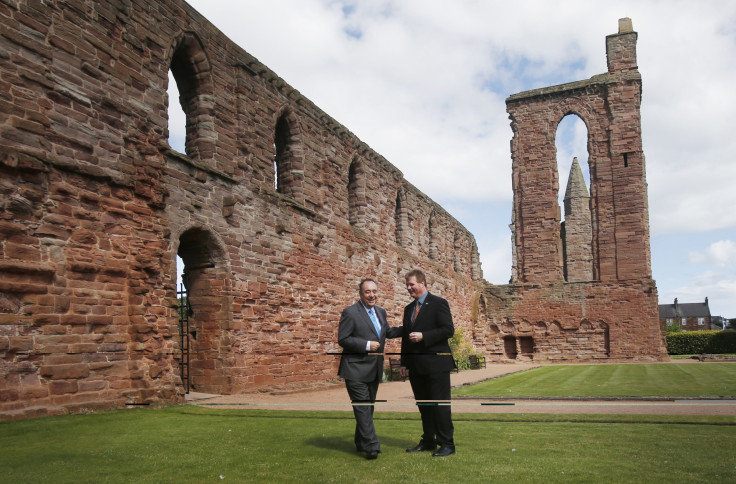Business Leaders Say Case For Scotland's Independence Has Not Been Made

(Reuters) - More than 100 business leaders spoke out against Scottish independence saying the business case for independence has not been made, the biggest intervention by the United Kingdom's business community in the referendum debate so far.
Voters will decide next month whether Scotland, which has a population of just over 5 million and is a source of North Sea oil, should end its 307-year-old union with England and leave the United Kingdom.
In a statement heads of some of the United Kingdom's biggest companies said the outcome of the historic Sept. 18 referendum would affect generations to come.
"As job creators, we have looked carefully at the arguments made by both sides of the debate," the letter states. "Our conclusion is that the business case for independence has not been made."
The letter also says there is uncertainty surrounding issues such as currency, regulation, tax, pensions, EU membership and support for exports.
Executives lending their names to the statement include Andrew Mackenzie, chief executive officer of BHP Billiton Plc; Douglas Flint, group chairman of HSBC Holdings Plc; Simon Thomson, CEO of Cairn Energy Plc; and Angus Cockburn, interim CEO of Aggreko Plc.
All signatories have signed the letter in their personal capacity.
The open letter organized by Keith Cochrane, chief executive of Glasgow-based engineer Weir Group Plc, is likely to be a huge shot in the arm for the British government's "Better Together" campaign.
So far, most businesses in the United Kingdom have refrained from making public comments as their workforces are divided on the issue of independence for Scotland.
If Scotland, with its $250 billion (150 billion pound) economy, 5.2 million people, oil industry, and nuclear submarine base, leaves Britain, with its $2.5 trillion economy and 63 million people, the consequences would be profound.
Britain's three main political parties want it to stay in the union, which includes England, Wales and Northern Ireland.
© Copyright IBTimes 2024. All rights reserved.





















